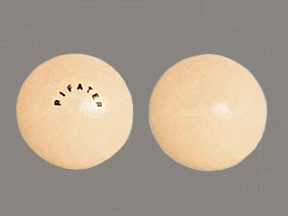RIFAMPIN/ISONIAZID/PYRAZINAMIDE - ORAL
PHONETIC PRONUNCIATION: (riff-AM-pin/eye-so-NYE-uh-zid/pir-uh-ZIN-uh-mide)
COMMON BRAND NAME(S): Rifater
GENERIC NAME(S): rifampin/isoniazid/pyrazinamide
Uses
USES: This product is used to treat tuberculosis (TB) of the lungs. It contains 3 medications: rifampin, isoniazid, and pyrazinamide. These medications are antibiotics. Rifampin is known as a rifamycin antibiotic. This product works by stopping the growth of bacteria. This antibiotic treats only bacterial infections. It will not work for viral infections (such as common cold, flu). Using any antibiotic when it is not needed can cause it to not work for future infections.
How to use RIFAMPIN/ISONIAZID/PYRAZINAMIDE - ORAL
HOW TO USE: Take this product by mouth 1 hour before or 2 hours after a meal, usually once daily or as directed by your doctor. Take it with a full glass of water (8 ounces/240 milliliters) unless your doctor directs you otherwise. If you also take antacids, take this medication at least 1 hour before the antacid. The dosage is based on your age, weight, medical condition, and response to treatment. For the best effect, take this antibiotic at evenly spaced times. To help you remember, take this medication at the same time(s) every day. Continue to take this medication (and other TB medications) until the full prescribed amount is finished, even if symptoms disappear. Stopping the medication too early or skipping doses may allow the bacteria to continue to grow, which may result in a return of the infection and cause the infection to be more difficult to treat (resistant). Your doctor may also direct you to take vitamin B6 (pyridoxine) to help prevent certain side effects (such as nerve problems) from isoniazid. Follow your doctor's instructions carefully. Isoniazid may interact with foods containing tyramine/histamine (such as cheese, red wine, certain types of fish). This interaction may cause increased blood pressure, flushing of the skin, headache, dizziness, or fast/pounding heartbeat. Tell your doctor right away if any of these symptoms occur. Your doctor may recommend that you follow a special diet while taking this medication. Consult your doctor for more details. Tell your doctor if your condition persists or worsens.
Side Effects
Precautions
Interactions
Overdose
Images
Reviews
Faq for RIFAMPIN/ISONIAZID/PYRAZINAMIDE - ORAL
Rifater is a combination medication used to treat tuberculosis (TB) in adults and children.
Rifater contains three active ingredients - rifampin, isoniazid, and pyrazinamide. Rifampin kills the TB bacteria by inhibiting the synthesis of RNA, while isoniazid and pyrazinamide work to inhibit the growth of the bacteria.
Common side effects of Rifater may include upset stomach, nausea, vomiting, diarrhea, headache, dizziness, or reddish-orange discoloration of bodily fluids (urine, sweat, tears).
Rifater should be taken orally as directed by your healthcare provider. It is usually taken once a day on an empty stomach, at least one hour before or two hours after a meal. It is important to complete the entire course of treatment.
Rifater may interact with other medications, including certain antibiotics, antifungals, antivirals, blood thinners, and oral contraceptives. Make sure to inform your doctor about all the medications you are taking to avoid any potential interactions.
Rifater should only be used during pregnancy if the potential benefits outweigh the risks. It may pass into breast milk and could harm a nursing infant, so it is recommended to consult with a healthcare professional before taking Rifater during breastfeeding.
The duration of treatment with Rifater varies depending on the individual and the severity of the tuberculosis infection. It can range from several months to a year or longer. It is crucial to complete the entire course of treatment as prescribed by your doctor.
If you miss a dose, take it as soon as you remember. However, if it is close to the next scheduled dose, skip the missed dose and continue with your regular dosing schedule. Do not double the dose to make up for a missed one.
Rifater may cause liver problems, so regular monitoring of liver function is necessary during treatment. It may also cause a decrease in platelets, which can increase the risk of bleeding. Inform your doctor if you have a history of liver disease or any blood disorders.
Warning
WARNING: Isoniazid has rarely caused very serious (possibly fatal) liver disease. The risk of liver disease is increased in people who are 35 years and older, who use alcohol or illegal injection drugs, or who currently have long-term liver problems. Tell your doctor right away if you develop symptoms of liver disease, including persistent nausea/vomiting, severe stomach/abdominal pain, unusual weakness/tiredness, dark urine, yellowing eyes/skin. Your doctor should order liver function tests while you are taking this medication. Keep all medical and laboratory appointments.
Disclaimer
IMPORTANT: HOW TO USE THIS INFORMATION: This is a summary and does NOT have all possible information about this product. This information does not assure that this product is safe, effective, or appropriate for you. This information is not individual medical advice and does not substitute for the advice of your health care professional. Always ask your health care professional for complete information about this product and your specific health needs.

No Reviews Yet